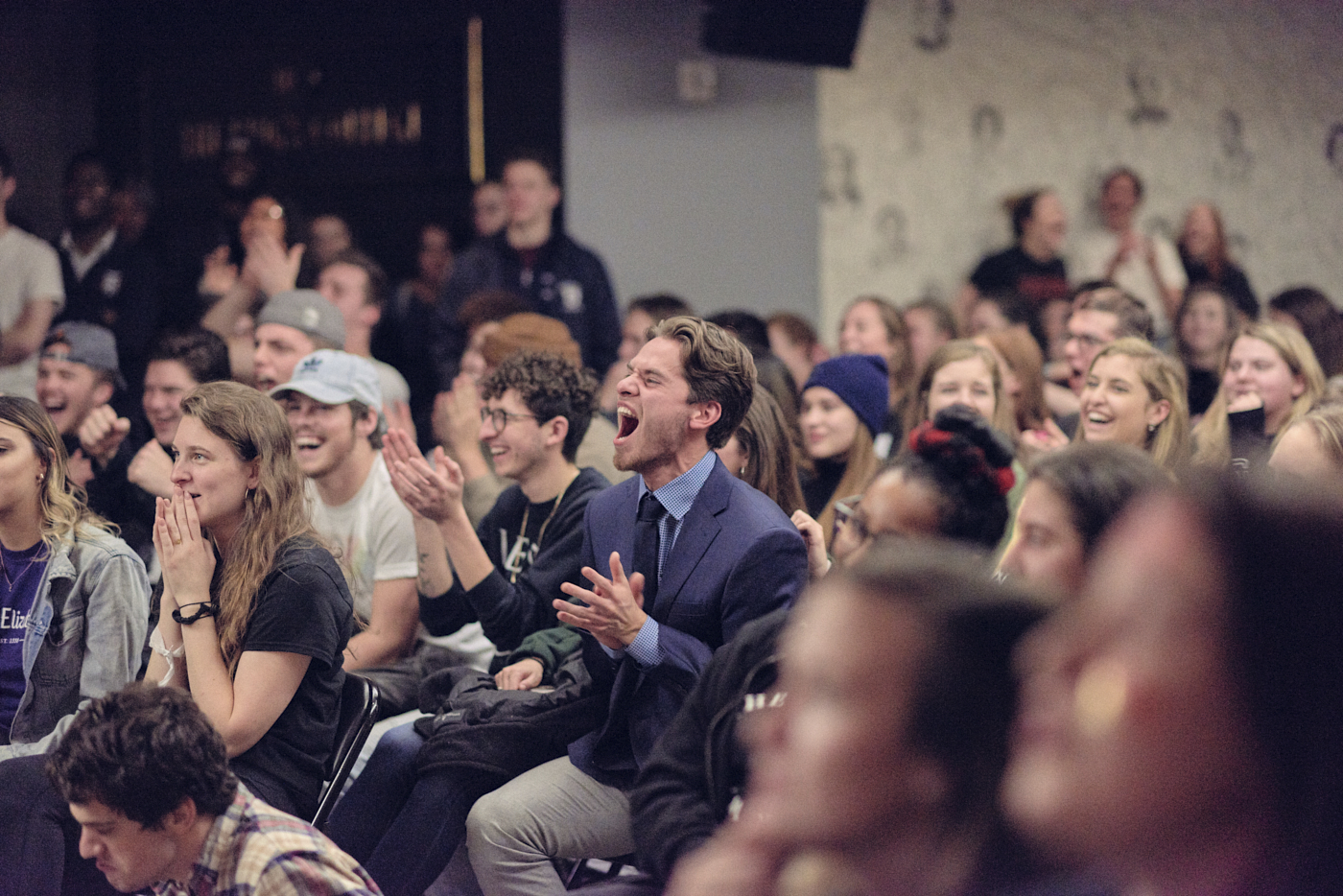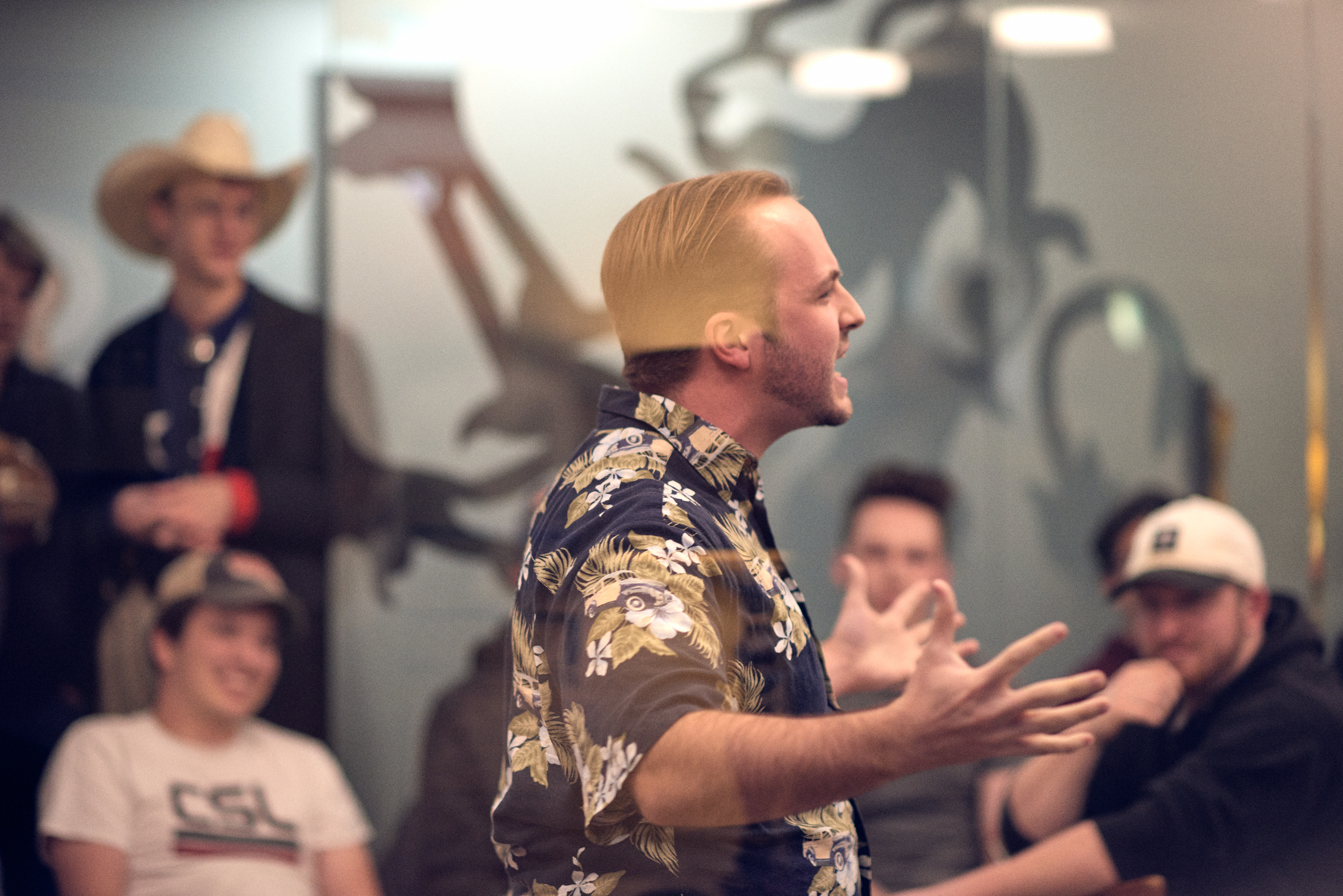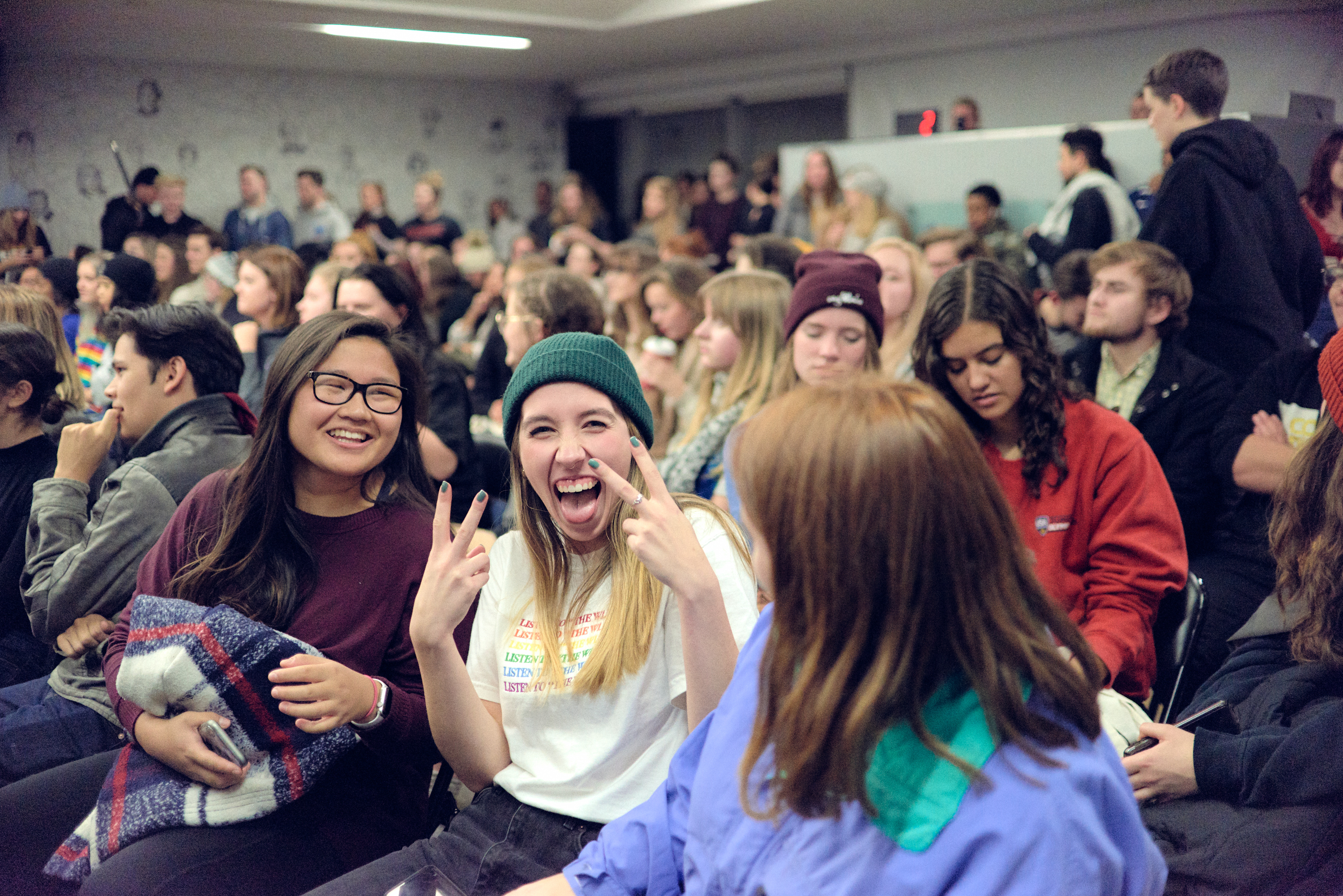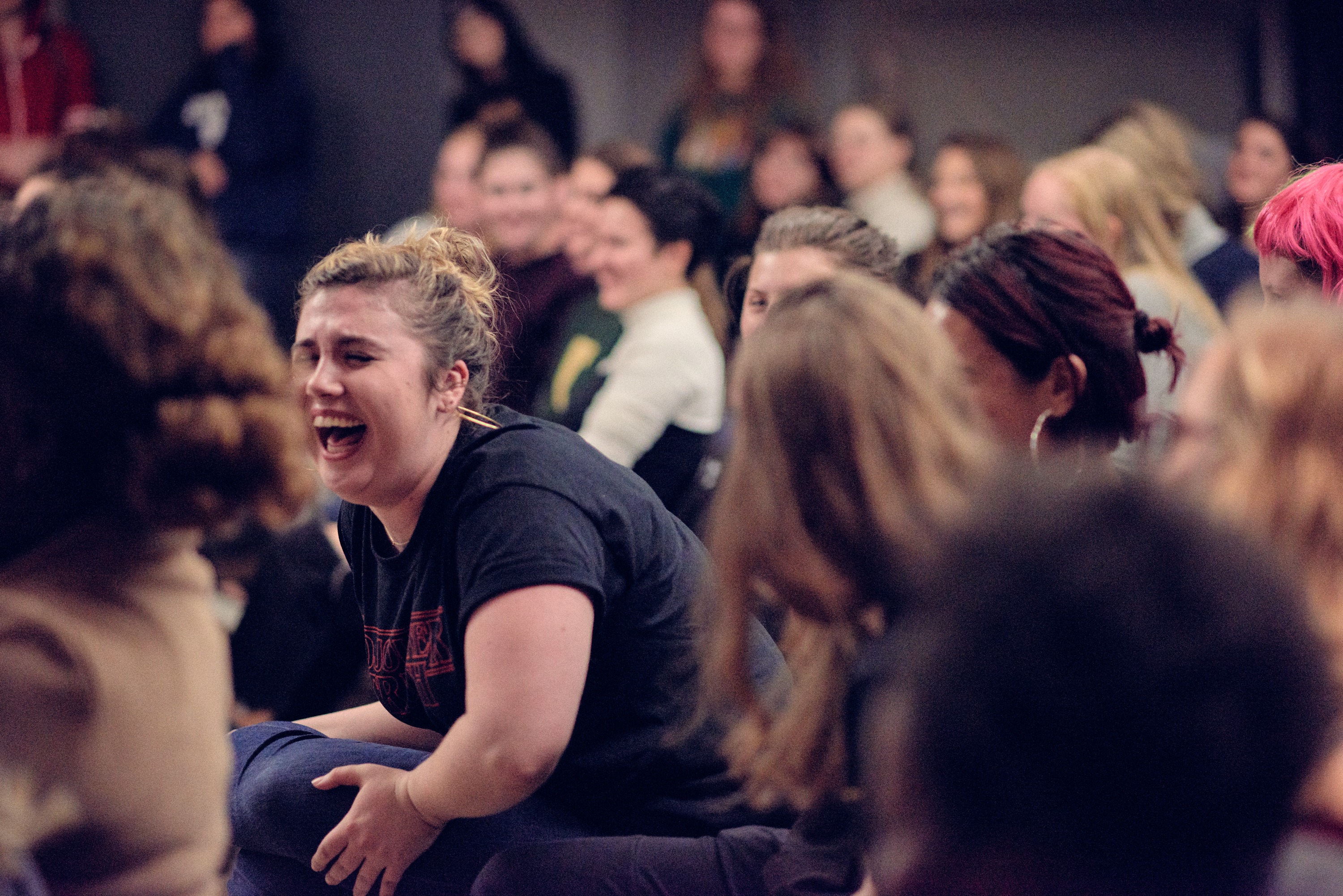Interregnum XVI: Progress and Sacrifice
On November 8-9, King’s students competed in the Interregnum XVI fall conference, taking up questions like, "When does the sacrifice become too great for the progress desired?"
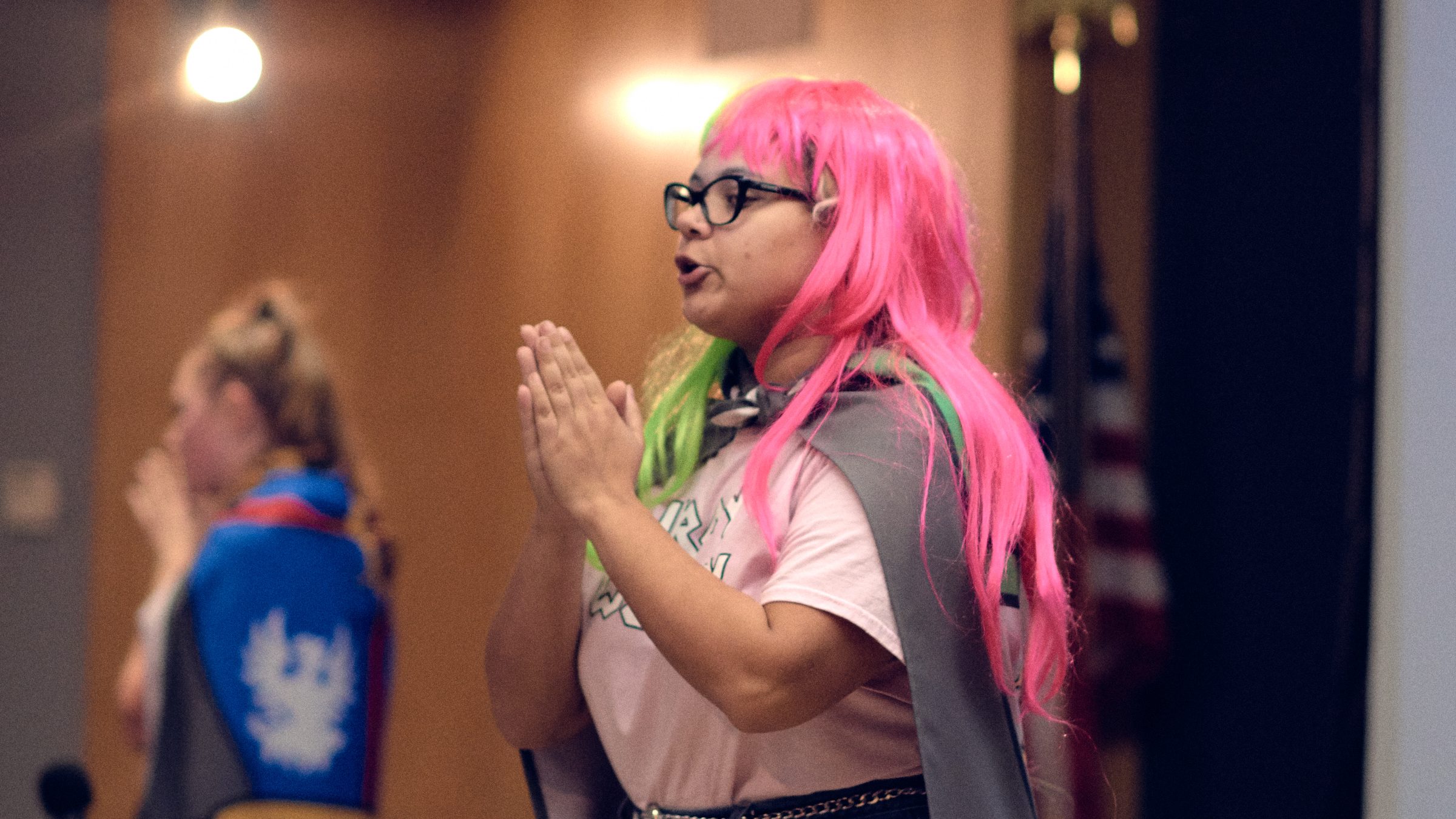
On November 8-9, King’s students competed in the Interregnum XVI fall conference. While last year saw the addition of the fall film festival, this was the first time Interregnum was fully split between the fall and spring semesters, a change intended to increase student engagement with the theme throughout the entire academic year.
During Interregnum, students showcase their talents and represent their House in various competitions, earning points towards the House Cup. This year, students read Brave New World by Aldous Huxley and the Epistle to the Philippians to reflect upon this year’s theme: progress.
Friday morning opened with breakfast, and then the Interregnum Committee announced the prompt for this year’s film competition. Students were given 24 hours to produce a 2-5 minute film examining the relationship between progress and sacrifice. Is progress worth the sacrifices we sometimes make for it? When should one sacrifice for the sake of progress and when does the sacrifice become too great?
After hearing this prompt, Houses immediately set out to plan and produce their films. This collaborative process entailed brainstorming, script writing, storyboarding, acting, filming, and editing. Meanwhile, other students put the finishing touches on their academic writing submissions, due Friday at midnight. After reading a portion of Enlightenment Now by Steven Pinker, four writers within each House each composed a 400-500 word academic essay answering questions including, “How should modern Christians view and respond to the Progress of the last three hundred years?”
At 1:00 PM Friday, students gathered in the City Room to hear Great Speech assignments. In the Great Speech competition, students imitate famous speeches related to the theme, often adding accent and costume to make their presentation more realistic. In preparation for the speech, House members edited their assigned speeches to fit the allotted 7-10 minute range and also constructed an introductory speech. In the interim, House members spent time in their designated “war room”: classrooms where House members met to work on projects. Students brewed coffee and lounged, generally accompanied by music, dim lighting, and food.
The final event on Friday was Random Theme Debate at 7:00 PM In this event, one competitor from each House is randomly paired with a competitor from another House for theatrical, light-hearted “debates.” Every round, a large number of specific objects are written on separate slips of paper and placed in a bag. Each contender selects a slip from the object bag and compares their object to the round’s given theme.
For instance, one debate centered around whether Google Calendar is more like “a fanny pack” or “an oil change.” Random Theme Debate is an opportunity for students to practice creative wit. The firey final debate hinged on whether coffee dates are more like “the Ten Commandments” or “flash mobs.” Haley Turner (MCA ’21), representing the House of Thatcher, convinced the judges that coffee dates are indeed more like the Ten Commandments, thus earning first place in that category for her House.
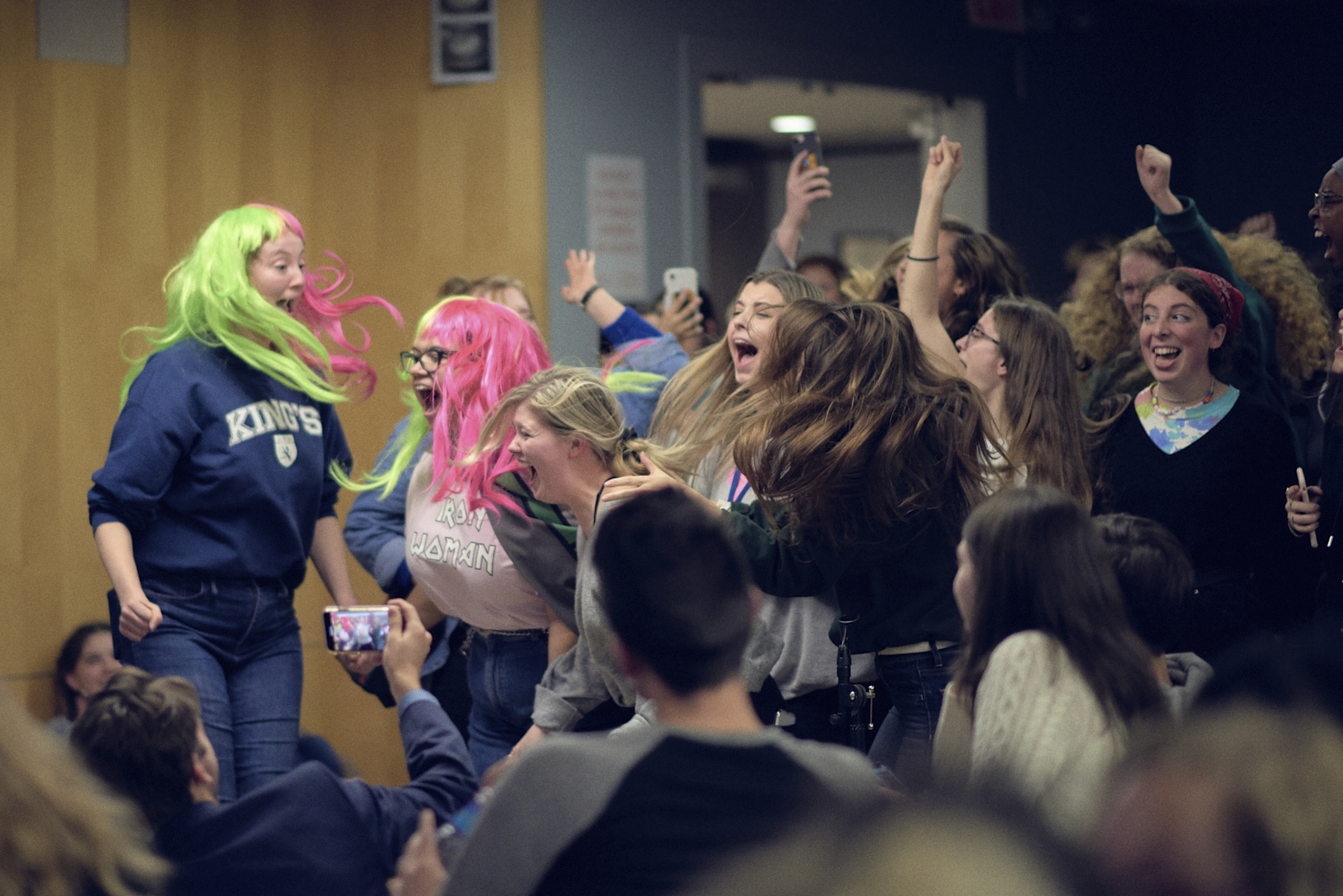
Houses turned in their entries for the film competition at 10:00 AM on Saturday. That afternoon, Houses delivered their Great Speeches. Students portrayed such figures as Jacinda Ardern, Mark Zuckerberg, and Pope John Paul II. Mattie Winburn (MCA ’23), representing the House of Clara Barton, imitated Condoleeza Rice’s 2012 commencement speech at Southern Methodist University, with an introduction by Sydney Watson (MCA ’20). In addressing the graduates, Rice said:
You’re headed into a world where optimists are too often told to keep their ideals to themselves. It is your responsibility as educated people to remain optimistic no matter what, but that’s not all. You have an obligation to act on those ideals, and this, the final responsibility of an educated person – really, the most important responsibility of all – is to work toward human progress.
Next, students packed into the City Room and various classrooms at 6:00 PM Saturday for screening of the long-awaited films. Students enjoyed snacks and danced to music while filing in to their film viewing locations.
After the film presentations concluded, students gathered to hear the final results of fall Interregnum. The House of Margaret Thatcher was declared winner of Random Theme and the House of Clara Barton was announced winner of Great Speech. The House of Sir Winston Churchill received first place in academic writing. Here is an excerpt from their entry:
In his book Heretics, G. K. Chesterton stated that “‘progress’ is simply a comparative of which we have not settled the superlative.” When moderns discuss the idea of progress in the modern world, they frequently commit chronological snobbery. While it is easy to assume that life is better in the 21st century than it was in the past, the only way to tangibly identify progress is using an objective reference point. Chesterton aptly describes how the term progress is frequently used—indicating some sort of improvement, but failing to identify its ultimate aim.
The winner of this year’s film competition was the House of Bonhoeffer. The film depicted a man conflicted between progressing in his work life and being a committed husband and father. The fall Interregnum results put SBA in the lead for the House Cup, with Bonhoeffer in second place and ten Boom in third.
The theme for this year opened up many juicy and tricky questions. While progress may generally be considered desirable, what does “progress” really mean? Progress implies more than just change. So, what makes change progressive? What are the parameters through which progress should be achieved? When does the pursuit of progress lead to pyrrhic victory and how can that be judged? When does the sacrifice become too great for the progress desired? Should progress be the primary or secondary aim? Students considered these questions and more during the Interregnum fall conference, set against the backdrop of Brave New World‘s creepy dystopia and the call to a selfless life in Philippians. Students can look forward to more thought-provoking conversations during the spring Interregnum conference coming up April 2-3, 2020.





